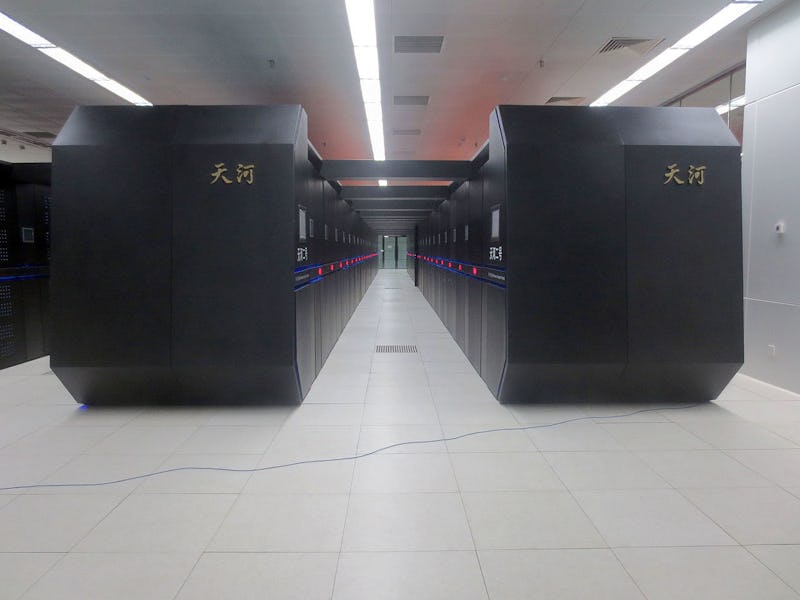How This Chinese Supercomputer Wins the NCAA March Madness Bracket
But nobody would know until after the fact.

It’s barely a week underway and already March Madness has gone insane, with millions of brackets crying out as one when 15-seed Middle Tennessee State University defeated number two Michigan State on Friday. Even if you did predict, somehow, that the MTSU Blue Raiders would pull off such an improbable upset, you’re not going to end up with a perfect bracket — the odds just aren’t in your favor. But what can handle the odds is the world’s most powerful computer, China’s Tianhe-2.
The Tianhe-2, which translates to the Chinese equivalent of Milky Way 2, can perform an average of 33.86 petaflops, or 33.86 quadrillion operations a second. That’s incredibly high — a Macbook Pro could achieve a theoretical 102 gigaflops in 2008 — but when dealing with the Madness, big numbers are the norm.
Given 64 games in the NCAA tournament, there are 2^63 different ways to create a bracket, or 9.2 quintillion ways to skin the March Madness cat. This is probably too rough an estimate, but let’s say it takes 64 operations to create any random bracket. Divided by 33.83 quadrillion operations a second that’s 17,400 seconds (4.8 hours). If you tasked Tianhe-2 to immediately start creating brackets when the NCAA announced the teams on Sunday, it could generate all possible combinations with plenty of time to spare.
But how do you let the world know you have the winning bracket? Post-generation leaves you with roughly 67 hours to cram all of those brackets into a website like ESPN’s. (After tacking on an additional 36 minutes or so to generate a first and last name, email address, valid password, select a gender and a birthdate for each of the entries.) The trick is transmitting that information without overloading the servers and triggering a denial-of-service attack. Divide the brackets by the remaining time and you’d have to send 38 trillion brackets per second.
Even if a bracket was a single bit, which it isn’t, you’d be left with 38,000 gigabits per second; the monster 2013 cyberattack on Spamhaus servers was 300 gigabits per second. And getting the 128 billion most likely winning brackets to ESPN’s servers (ignoring the possibility of an 16-1 or 15-2 upset, which we already know wouldn’t work), would require transferring 530 thousand brackets a second. This is more manageable, sure, but could strain a system that had a record 1 billion total visits in September.
So humanity could theoretically generate a winning bracket, if we could persuade China to devote a few hours of its $385 million device away from computing national security threats to cracking college basketball. You could always look for the bracket after the fact. But locking down that $10,000 Amazon Gift Card for an unblemished bracket on ESPN, however, remains out of even Milky Way’s reach.